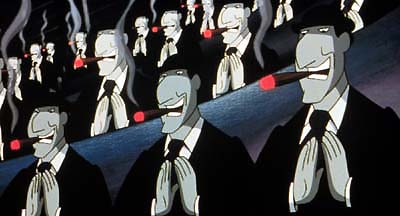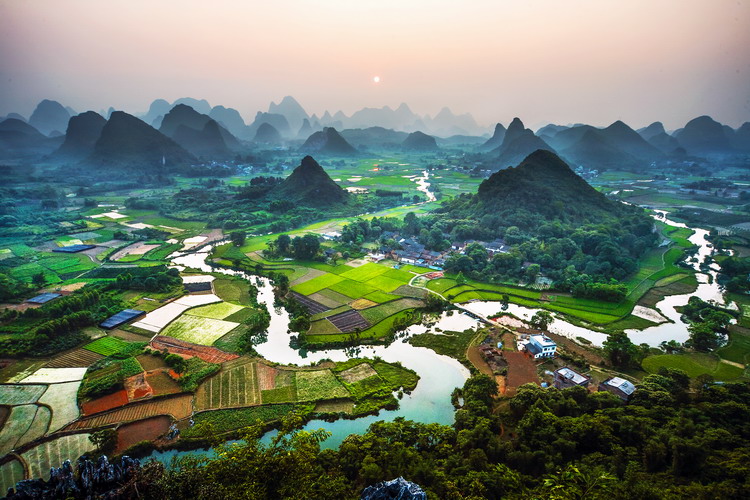Three years after our last visit to beautiful Yangshuo, we happen to cycle from there to the small hamlet of Liugong. Its my daugther’s first real bike ride of about 15k along the Li River and the postcard backdrop of the carst mountains, which everybody knows from this region; our daughter dubbed them cat-ear-hills the last time we were here. As we arrive in Liugong I ask where to buy the boat tickets back to Yangshuo and am told that they are a whooping 160 yuan per person; and there is no reduction for my child, because she is already taller than 130cm. I am about to get again one of my China boots, but decide to just make a mental note of how corrupted this country is. Let it not corrupt my mood.
I call a friend back in Yangshuo to get a driver to pick us up for 100 yuan flat and sit down in the shabby restaurant next to the ticket booth. I apologize to the owner for neither buying the boat tickets from her nor the ticket booth and while ordering our dishes I explain to her that the prices are just outrageously high. Not even in Norway or Switzerland one would pay 20 Euros for a 12k boat ride on desolate rafts. I don’t blame her, but this corrupt government, which imposes such high pricing and does not invest at least part of the profit back into the region or into tourism.
It’s the third time that I am in Yangshuo since 2006 and I have a feeling that conditions have deteriorated for the average local resident. Prices have gone up and the tourism industry is completely controlled by the local government. Ms. Li opens up during my little pep talk and confirms this. She sold boat tickets back in 2003 for 150 yuan per boat of four people. Then she had many guest from Guangdong, but they don’t take her boat anymore, they come by bus. Why I ask? Because since 2008 the government has monopolized the boat traffic and collects 80 yuan per person in addition to her fees. They also think its too expensive. Transportation costs have effectively quintupled since 2003 from not even 40 yuan to 160, but she still earns the same with less business coming in. This is mafia I interject. She smiles and replies “with the mafia you could at least negotiate, with the government you can’t. The communist government is worse than the black society | 共产党比黑社会还坏; Its redder than black.”
I am reminded of a thought, which I had already during law school: it’s only a thin line between genius and insanity; it’s the same thin line between government and organized crime. The current director of merics, a German think tank on China, Prof. Sebastian Heilmann, wrote back in 2003 about the Chinese political system and categorized corruption into three main forms if looking at the macro economic impact of corruption:
- Confiscating corruption = economic values are taken out of the economic system > extremely growth averse
- Participating corruption = economic values remain in the economic system > growth conform
- Organized crime = economic values can both be taken out of the system or remain within, but main corrupted organization is different from government or the government itself is privatized.


 RSS Feed
RSS Feed